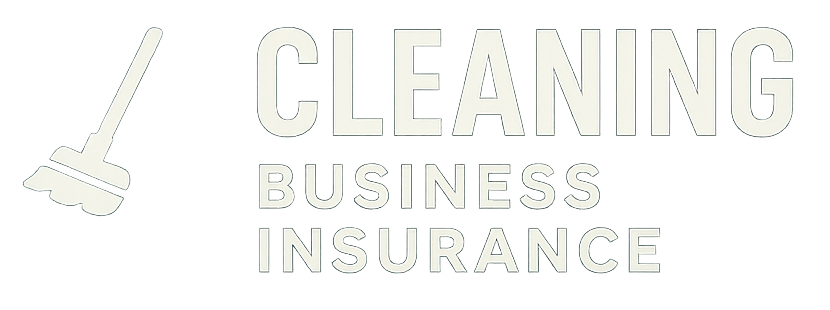Running a cleaning business in California comes with many opportunities, but it also carries risks that can lead to costly claims. Whether it’s a small residential maid service or a large commercial janitorial company, accidents can happen when working in client spaces filled with valuable property and people. Insurance plays a vital role in protecting businesses from financial losses when the unexpected occurs.
In this article, we will explore the top five most common insurance claims made by cleaning businesses in California, why they happen, and how insurance helps to cover them. Understanding these risks can help you make informed decisions when choosing coverage and improve your risk-management practices.
1. Property Damage Claims
The most frequent type of insurance claim for cleaning companies involves accidental property damage. Cleaners work around expensive items daily — from electronics in office buildings to glass fixtures in luxury homes. A simple mistake, such as knocking over a television, scratching hardwood floors, or spilling cleaning solution on furniture, can result in significant repair or replacement costs.
Property damage is especially common in California’s commercial hubs like Los Angeles and San Francisco, where businesses use high-value equipment and décor. Even minor damages can quickly escalate into major financial losses if a client demands full replacement.
General Liability Insurance is the primary policy that addresses these situations. It helps cover the cost of repairs, replacements, or even legal fees if a client decides to sue. Without it, a single incident could seriously impact a small cleaning business’s financial stability.
2. Slip-and-Fall Accidents
Slip-and-fall incidents are another leading cause of insurance claims in the cleaning industry. Wet floors, freshly polished surfaces, or misplaced equipment can create hazards for clients, employees, or visitors. When someone is injured due to a slip or trip during cleaning, the business can be held liable for medical expenses, lost wages, and even legal settlements.
California is especially strict about premises liability, meaning businesses must ensure safe conditions for anyone entering the property. For cleaners, this responsibility is two-fold: they must protect both their own workers and their clients.
Liability insurance covers these claims, but prevention is just as important. Many cleaning businesses now implement safety training, warning signs, and checklists to reduce the likelihood of slip-and-fall accidents, which helps in keeping claims — and premiums — lower over time.
3. Employee Injury Claims
Cleaning work is physically demanding, often involving lifting heavy equipment, repetitive movements, and exposure to cleaning chemicals. As a result, employee injuries are among the most common reasons cleaning businesses in California file insurance claims. From back strains caused by moving furniture to chemical burns or respiratory issues, workplace injuries can lead to expensive medical treatments and lost productivity.
California law requires businesses with employees to carry Workers’ Compensation Insurance. This coverage helps pay for medical bills, rehabilitation costs, and lost wages when employees are injured on the job. For employers, it also provides protection from costly lawsuits by ensuring employees have access to benefits without the need for legal battles.
Because cleaning teams often work in environments outside their direct control — such as client offices or homes — the risk of unexpected accidents increases. Having strong workers’ compensation coverage is not only a legal obligation but also a smart business decision to keep operations secure.
4. Theft or Loss of Equipment
Cleaning businesses rely heavily on tools and equipment like vacuums, steamers, mops, and cleaning chemicals. In California’s urban areas, theft of these items is a recurring problem, particularly when equipment is stored in vehicles or on job sites. Losing essential tools can disrupt operations, delay projects, and cost thousands of dollars to replace.
Insurance policies such as Inland Marine coverage or Equipment Insurance help cover these losses. This protection extends to equipment that is frequently transported from one location to another, which is common for cleaning companies that service multiple clients across a wide area.
Beyond financial reimbursement, having coverage for theft or loss demonstrates professionalism to clients, reassuring them that even if something goes wrong, the business is prepared to handle it without disruption.
5. Contract Disputes and Liability for Service Quality
In California’s competitive cleaning market, many businesses work under strict contracts with commercial clients, property managers, or homeowners’ associations. Disputes can arise if a client claims that cleaning was not performed to agreed standards or if tasks were missed entirely. While not as common as property damage or slip-and-fall claims, contract disputes can still result in expensive legal battles.
Professional Liability Insurance, also known as Errors & Omissions (E&O), can provide protection in these cases. It helps cover legal defense costs and settlements if a client alleges that the business was negligent or failed to deliver promised services.
Given California’s emphasis on consumer rights, disputes over service quality can quickly escalate. For cleaning businesses, carrying this type of coverage provides peace of mind and protects their reputation.
Building a Safer and More Secure Cleaning Business
These five categories — property damage, slip-and-fall accidents, employee injuries, equipment theft, and contract disputes — represent the most common insurance claims faced by cleaning companies in California. While no business can eliminate risks entirely, insurance ensures that when accidents happen, they don’t threaten the company’s future.
By understanding these claims, cleaning business owners can take proactive steps to reduce risks, such as implementing safety protocols, properly training staff, securing equipment, and maintaining detailed contracts. Combined with the right insurance coverage, these efforts not only protect the business but also build trust with clients who want assurance that their property and safety are in good hands.
For California cleaning companies, staying insured isn’t just about compliance — it’s about sustainability, professionalism, and long-term growth in a competitive industry.
